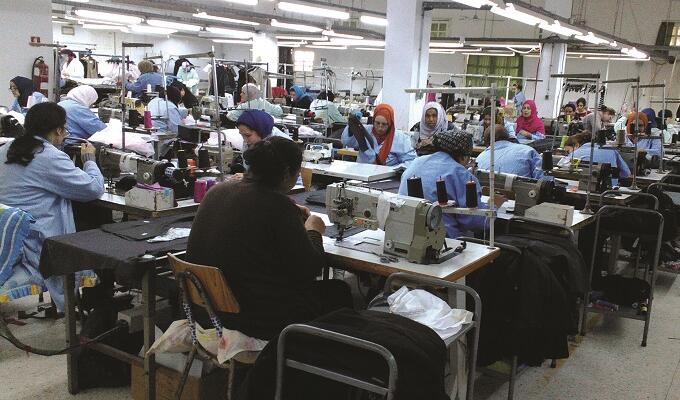

Developing and sustaining Tunisia’s textile and clothing sector
and looking towards a better future
Difficulties faced by Tunisian companies since the global economic crisis of 2008 were further aggravated following the 2011 Revolution, which overthrew the country’s leadership and ignited uprisings across the Arab world. As a result, many companies relocated large portions of their businesses, with several moving their operations out of the country. Others, especially in the the textile and clothing sector, have been determined to continue their efforts to maintain their businesses and keep jobs through innovative trading.
It is in support of this effort that the International Trade Centre (ITC) launched the Com-Texha project (after its French name, Appui à la Compétitivité de la chaîne de valeur du secteur textile et habillement) in Tunisia, which provides support for beneficiary companies to improve competitiveness through the value chain. Com-Texha is providing support to small and medium-sized enterprises (SMEs) and related institutions in the textile and clothing sector with a view to step up job creation in the sector.
In cooperation with the Ministry of Trade, trade and investment support institutions (TISIs), and financial support from the Swiss State Secretariat for Economic Affairs (SECO), Com-Texha aims to support and assist companies to strengthen their export competitiveness, diversify markets and develop products with higher added value.
It helps companies search for potential buyers and suppliers, and also aims to integrate young people in the workplace. Two companies that benefit from the project are Zaoui Création Moderne (ZCM), a corporate clothing workshop, and Dorratex, which specializes in women’s ready-to-wear clothing.
Like many Tunisian companies, ZCM started its business with subcontracting. For many years it relied on a single customer to provide the workload throughout the year, enabling the single source to take advantage of the situation and set maximum prices. Faced with this situation, the head of ZCM, Mohsen Zaoui, took a gamble and ended the single customer collaboration, seeking new markets with foreign businesses.
‘We risked losing everything in the blink of an eye,’ Zaoui says. ‘We were forced to reduce our workforce following a power failure and lost the confidence of our bank and our suppliers due to a lack of liquidity and failure to comply with our commitments.’
In an effort to quickly find new customers, Zaoui contacted his network of friends, looking for short-term work. He also contacted potential major clients and foreign businesses. Finally, he reduced his selling price to attract new customers.
He advises other Tunisian companies still in his former situation to look at how to best restructure their operations and hire people for key positions who have the skills and abilities to perform quality work. He says that for a good business, there needs to be someone in charge of sourcing who is fully aware of the importance of design.
Zaoui’s views are aligned with the Com-
Texha project, which helps participants diversify
sources of supply, establish procurement
consortiums, and the project is currently
supporting the design of an online platform
to facilitate partnerships across the sector.
It also assists SMEs in the design and development
of new, environment-friendly products
and, as such, makes it easier to access
new markets.
For its part, Dorratex experienced difficulties in 2009 and 2010 that resulted in the company halving its workspace and workforce. After 2011, company manager Mohamed Hichri made a decision that would change how his company operated: to accept all orders other companies turned down, such as micro-series and complex high-end clothing. To offset fluctuations in order processes and periods of heavy workloads, Hichri financially and materially supported two of his former line-managers in launching their own business. With a wide understanding of the level of quality and technical requirements of the product, they are now a major asset to Dorratex.
Hichri’s company invested in computeraided design, created a research department, formed a designer and prototype package and developed versatility in its staff so that they could work in traditional production lines or autonomous groups.
He says that his company participates as much as possible in trade events, such as trade shows and business-to-business meetings. Dorratex has also revamped its website so that it has a high ranking on some search engines. It has established trust with its customers, who recommend the company to other clients.
‘Never take customers for fools,’ Hichri says. ‘Never say ‘yes’, when you can’t deliver and never say ‘no’ when you can! Be in the present day and, finally, respond quickly to the demands of clients.’



